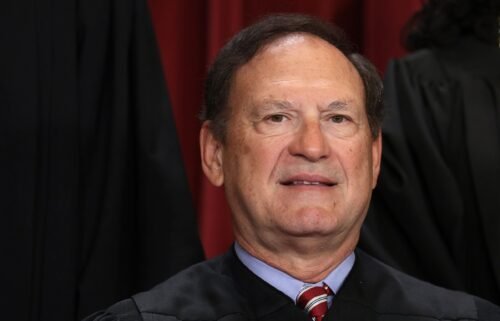Pelosi stands by infrastructure strategy despite pushback

By Clare Foran, CNN
House Speaker Nancy Pelosi indicated on Wednesday that she stands by her assertion that the House won’t take up a bipartisan infrastructure deal until the Senate passes a more sweeping package through budget reconciliation, a position that has drawn criticism from Republicans and caused some anxiety among moderate House Democrats.
“The statement that I made, yes, that is a statement I stand by,” Pelosi said at a news conference when asked by a reporter if it is still her position that the House won’t vote on a bipartisan or reconciliation package until the Senate moves first.
“Our caucus is very, very pleased with the bipartisan agreement that the President was able to achieve working with Democrats and Republicans in the Senate,” Pelosi said, adding, “What I said last week and I reiterate now is that in the House of Representatives that particular version as it is is something that we would take up once we see what the budget parameters are of the budget bill that the Senate will pass.”
Pelosi’s deputy chief of staff Drew Hammill later tweeted, “By ‘budget bill,’ Speaker means ‘reconciliation bill’ not budget resolution. As she began this response ‘The statement that I made, yes that is the statement I stand by.’ No change in position here. Full stop.”
The comments from the speaker come after she said last week, “Let me be really clear on this: We will not take up a bill in the House until the Senate passes the bipartisan bill and a reconciliation bill.” Emphasizing the point, she said, “There ain’t gonna be no bipartisan bill, unless we have a reconciliation bill.”
Democratic leaders are pursuing a dual track approach to infrastructure, pushing for a bipartisan bill while also setting the stage for the Senate to pass a package that would only require Democratic votes and would include priorities left out of the deal.
In the process, party leaders have had to balance competing demands from progressives who are more focused on advancing a robust reconciliation package, and moderates more focused on finding common ground in a bipartisan approach.
Pelosi’s stance has earned her praise from progressives, but Republicans have called for her to walk back the comments and some moderate Democrats have expressed unease over the approach, worrying that tying the two efforts together could put both in jeopardy.
Over the weekend, President Joe Biden attempted to walk back earlier remarks when he said he wouldn’t sign a bipartisan bill on infrastructure unless it came paired with a reconciliation proposal.
Senate Minority Leader Mitch McConnell said on Monday that Biden “appropriately delinked” the two issues, but went on to say that Biden must ensure that Pelosi and Senate Majority Leader Chuck Schumer follow his lead or else “President Biden’s walk-back of his veto threat would be a hollow gesture.”
Pelosi allies and members of leadership, meanwhile, say the strategy will end up working out, arguing that the two timelines are more aligned than it seems, since both the bipartisan deal and the reconciliation proposal will take months to sort out — and likely wouldn’t see final passage until September anyway.
The-CNN-Wire
™ & © 2021 Cable News Network, Inc., a WarnerMedia Company. All rights reserved.
CNN’s Manu Raju and Annie Grayer contributed to this report.



